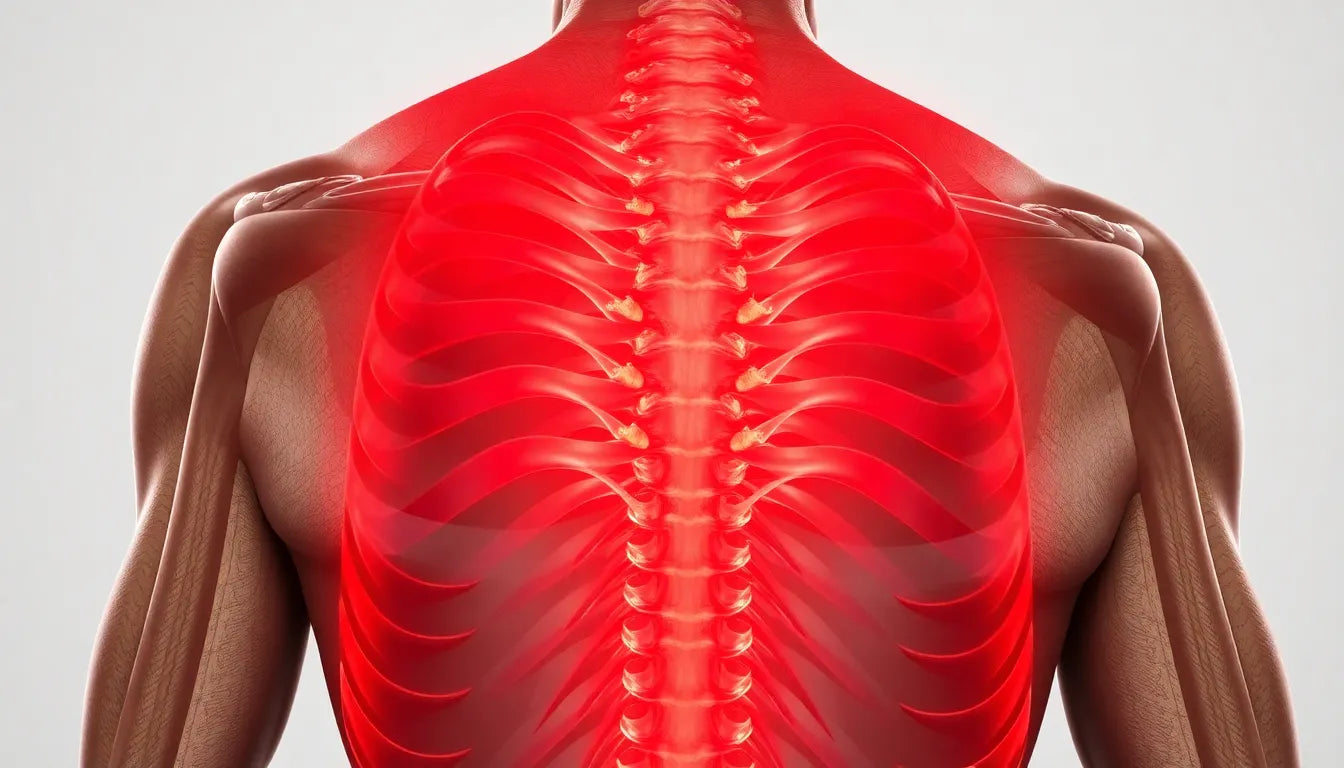Waking up with lower back pain is a common struggle for many individuals, affecting their quality of life and daily activities. This discomfort, often referred to as "smerter i lænden om morgenen," can be puzzling and frustrating. Have you ever wondered why your lower back feels stiff and painful every morning? You're not alone.
Morning lower back pain is a widespread issue, with many people experiencing this discomfort due to a variety of factors. These can range from lifestyle choices and sleeping habits to underlying medical conditions. While the pain is often benign, understanding its root causes can be the first step towards finding effective solutions. It's crucial to identify these factors to address the pain and prevent it from becoming a chronic issue.
The prevalence of morning back pain
Many people experience morning back pain at some point in their lives, and it can be attributed to several causes. Poor sleeping positions, inadequate mattress support, and even a sedentary lifestyle can contribute to this discomfort. Additionally, certain medical conditions such as osteoarthritis or muscle tension can exacerbate the situation. Despite the discomfort, it's important to note that most cases of morning back pain are not indicative of a serious health problem. However, addressing the issue is vital for maintaining a healthy and active lifestyle.
The impact on daily life
Morning back pain can significantly affect your daily routine and overall well-being. It can make simple tasks like getting out of bed or bending over to tie your shoes challenging and painful. This pain can also lead to decreased productivity and a lower quality of life. Therefore, it's essential to address the issue head-on and explore potential solutions.
The aim of this blog is to delve into the causes of morning lower back pain and provide actionable solutions to help you wake up pain-free. By understanding the underlying reasons for your discomfort, you can take steps to alleviate the pain and improve your overall health. Stay tuned as we explore the various causes and effective strategies to combat morning back pain, enabling you to start your day with ease and comfort.
Understanding the causes of morning lower back pain
Waking up with lower back pain, known as "smerter i lænden om morgenen," can stem from several sources, each contributing to the discomfort in unique ways. Recognizing these causes is the first step toward finding effective relief and preventing future pain.
Stiffness and muscle tension
During sleep, your body's blood circulation decreases, leading to stiffness and reduced mobility in joints and muscles. This natural process can cause you to wake up feeling tight and sore. Muscle tension, often exacerbated by stress or poor posture during the day, can also contribute to morning discomfort. Engaging in regular stretching and relaxation exercises can help alleviate this tension.
The impact of sleeping position
Your sleeping position plays a crucial role in the health of your lower back. Sleeping on your stomach, for instance, can strain your back and neck, leading to pain upon waking. Instead, consider sleeping on your back with a pillow under your knees or on your side with a pillow between your knees to maintain proper spinal alignment and reduce pressure on your lower back.
The role of mattress and pillow quality
The quality of your mattress and pillow significantly affects your sleep and back health. A mattress that is too soft or too firm can lead to improper spinal support, resulting in morning stiffness and pain. Similarly, an unsupportive pillow can strain your neck and shoulders, indirectly affecting your lower back. Investing in a medium-firm mattress and a supportive pillow can make a substantial difference in your comfort and spinal health.
Inactivity and its effects
A sedentary lifestyle can lead to muscle imbalances and tension, which are not relieved during sleep. Regular physical activity helps maintain muscle flexibility and strength, reducing the likelihood of waking up with back pain. Incorporating exercises such as yoga or Pilates into your routine can improve your overall mobility and decrease morning stiffness.
Circulatory issues and less discussed factors
Circulatory problems, although less commonly discussed, can also contribute to morning back pain. Blood pooling and discomfort due to poor circulation can exacerbate stiffness and soreness. Ensuring that you move regularly throughout the day and practice good posture can help improve circulation and reduce these issues.
Degenerative and inflammatory conditions
Certain medical conditions, such as osteoarthritis, ankylosing spondylitis, and herniated discs, can worsen nighttime and morning pain. These conditions may require medical intervention and should be evaluated by a healthcare professional if your pain persists or worsens. Early diagnosis and treatment can help manage symptoms and improve your quality of life.
Assessing the severity of your back pain
It's important to note that most cases of morning back pain are not indicative of serious illness. Benign overuse and muscle tension are common causes, while serious conditions like herniated discs or arthritis are less frequent. However, if your pain is severe, persistent, or accompanied by other symptoms like numbness or weakness, it is advisable to seek medical advice to rule out more serious issues.
Visualizing solutions
Incorporating visual aids, such as diagrams of correct versus incorrect sleeping positions and mattress types, can be beneficial in understanding how these factors affect your back health. Visualizing the ideal sleeping setup can help you make informed decisions about your sleep environment, ultimately reducing your risk of morning back pain.
By identifying and addressing these common causes of morning lower back pain, you can take proactive steps toward a pain-free start to your day. In the next section, we will explore practical solutions and tips to help you wake up feeling refreshed and comfortable.
Solutions for alleviating morning lower back pain
Addressing "smerter i lænden om morgenen" requires a multifaceted approach that combines lifestyle adjustments, ergonomic improvements, and medical consultation when necessary. By implementing these strategies, you can significantly reduce morning discomfort and enhance your overall quality of life.
Engaging in regular movement and mobility exercises
Incorporating movement into your daily routine is crucial for alleviating morning stiffness. Simple exercises such as gentle stretches, yoga, or Pilates can help improve flexibility and strengthen the muscles supporting your lower back. These activities promote better circulation and reduce muscle tension, making it easier to start your day without pain.

Lumbar support belt
Provides stabilisation and relief for lower back pain; adjustable for tailored support during daily activities.
Optimizing your sleep environment
Your sleep environment plays a significant role in preventing lower back pain. Selecting the right mattress and pillow is essential for maintaining proper spinal alignment. A medium-firm mattress provides the ideal balance of support and comfort, while a supportive pillow ensures your neck and shoulders are aligned. Additionally, adopting a sleeping position that supports your back, such as lying on your back with a pillow under your knees or on your side with a pillow between your knees, can help reduce pressure on your spine.
Consulting a healthcare professional
If you suspect an underlying medical condition or if your pain persists despite lifestyle changes, it is advisable to consult a healthcare professional. Conditions such as osteoarthritis, ankylosing spondylitis, or herniated discs may require specific treatments, including medication or physical therapy. A medical professional can provide a tailored treatment plan to address your specific needs and help manage your symptoms effectively.
Incorporating case stories for inspiration
Real-life examples can be powerful motivators for change. Consider the story of John, who experienced chronic morning back pain due to poor sleeping habits and a sedentary lifestyle. By switching to a supportive mattress, adopting a side-sleeping position, and incorporating daily stretching exercises, John was able to significantly reduce his discomfort and improve his quality of life. Such stories illustrate the tangible benefits of making informed lifestyle changes.
Frequently Asked Questions
What are the best sleeping positions to prevent lower back pain?
Sleeping on your back with a pillow under your knees or on your side with a pillow between your knees are recommended positions to maintain proper spinal alignment and reduce pressure on your lower back.
How do I know if my mattress is contributing to my back pain?
If your mattress is over 7-10 years old, too soft, or too firm, it might be time for a replacement. Consider a medium-firm mattress for optimal support and comfort.
When should I see a doctor for my morning back pain?
If the pain is severe, persistent, or accompanied by other symptoms like numbness or weakness, it is advisable to seek medical advice to rule out more serious issues.
Can lifestyle changes really make a difference?
Yes, incorporating regular physical activity and optimizing your sleep environment can significantly reduce morning back pain. These changes promote better circulation, reduce muscle tension, and improve overall spinal health.
By understanding the causes and implementing these solutions, you can take proactive steps to alleviate morning lower back pain and enjoy a more comfortable start to your day. Embrace these changes and experience the benefits of waking up pain-free.

Men's Posture Shirt™ - Black
Enhances posture, relieves back tension, and activates muscles with patented NeuroBand™ technology.


















